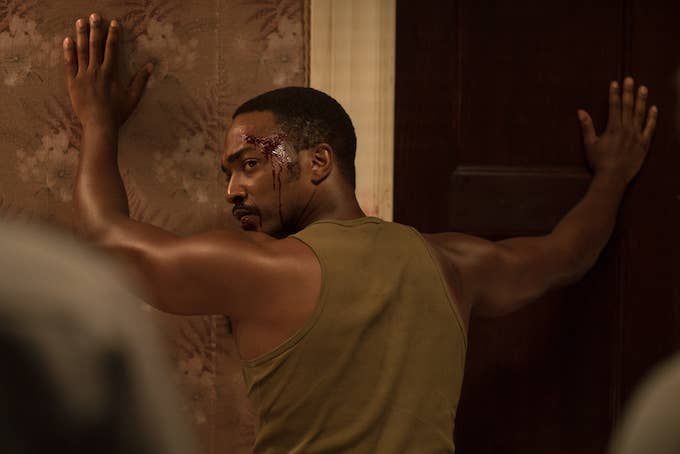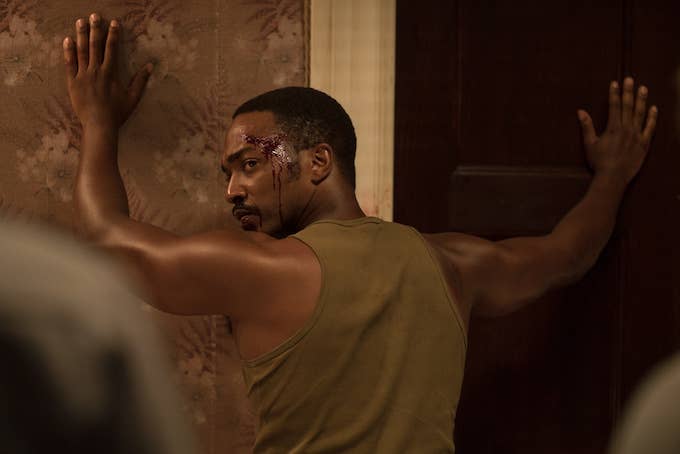
2016 saw an empowerment of sorts in Black cinema, with movies like Hidden Figuresand Best Picture winnerMoonlight taking a nuanced look at the African American experience that shied away from portraying us as slaves—this was a small step towards the normalcy that I’d hope to see. Moviegoers saw strong and flawed Black characters who dealt with taboo situations within the community like homosexuality, masculinity and the struggle of Black women. They were stories that were relatable without being overly heavy handed towards the current climate within America. These movies were important because, quite frankly: I’m tired of seeing my people die on screen.
Yet Kathryn Bigelow’s devilishly manipulative and reductive movie Detroit spits in the face of the progress movies have made with the Black experience just 12 months ago. Every single day, through social media or another medium, Black people are targeted mercilessly—to a point where it has almost become numbing. It’s a reality that I see when I turn on my television, and now it is starting to seep through into cinema. Our history may be filled with tragedy and loss, but we are not defined by it. It seems like no one told Bigelow, who directs the sort-of true re-enactment of the Detroit riots from the 1960s like a Tobe Hooper/George Romero social horror movie where Black people are the prey. Combining the stories of an ensemble cast of characters that culminates in the fateful standoff in the Algiers Hotel, the film tries to make sense of the tragedy—but instead it muddies its meaning with lazily written characters and unforgivable (and tasteless) clichés.
Detroit isn’t without some inspired moments—some of the performances are stellar—Algee Smith steals the show as Larry Reed, a Motown singer that survived the riots showing his range as a singer and an effective dramatic actor. John Boyega doesn’t share the screen with his co-stars often, but he gives an understated turn as security guard Melvin Dismukes. Detroit does an excellent job of building the world in the beginning, with characters that only appear in the first act, letting the audience see WHY the riot started. When it gets to the Algiers hotel, and the subsequent hostage situation where Detroit police held a hotel of Black and White twentysomethings against their will under the suspicion of there being a sniper there, it fails to deconstruct the characters in a realistic way. Will Poulter leads a squad of police in the movie, and he might as well have had a long moustache to stroke as he tops himself every five minutes in screen-chewing and disgusting detail.
The rest of the cast suffers far too often from paper thin writing, which may be a side effect of the dramatization of the incident itself. Mark Boal, who I’m sure didn’t have a single Black person in the room with him while he wrote the film, lays the lazy racist characterizations on thick, leaving the movie with boring, surface level conclusions on race relations—and struggling hard to mirror the movie with the things that we see in today’s world. In Boal’s goal to give an unflinchingly “real” interpretation of the incident, he’s removed all semblance of a real understanding of the Black experience. He knows that we are talented, that we are oppressed, and that we are targets—but he doesn’t know what it’s like to BE us. And he doesn’t even understand why the images he put to the page are in bad taste when put on screen. The story of the Algiers Hotel may not even be his or Bigelow’s story to tell—but they soldier on with the subtlety of a bull in a China shop.
Bigelow doesn’t miss in her shooting of the film, making it feel just as claustrophobic and stressful as Zero Dark Thirty, but I also have to question her touch here as well. It’s an American tragedy that feels like it’s being played as a snuff film, with beatings that are so visceral that I’m sure a lot of people will be emotionally jostled into thinking that this was a “brave” take on an untold story. It isn’t, and it’s obvious that Detroit is wilding for award season respect. You’ll feel every single crack of the nightsticks that the law enforcement uses against the victims, and the movie doesn’t shy away from showing the audience the bloody aftermath of every violent act. A victim lies in a pool of blood for much of the movie’s runtime, with the camera circling back to it like a gory reminder to the cast, and the audience. This is, of course, deliberately done to reignite the stakes and selfishly remind us of the present day implications of this type of brutality.
I don’t doubt that ‘some’ of the disgusting acts depicted in this movie happened (some of them so bad that a few people walked out of my screening), but when we see this so often, I was almost desensitized to it. It felt cheap, and pandering to get a reaction out of Black people. There’s a particular scene where Smith’s character escapes the hotel and runs into the arms of seemingly the only racially sensitive (and White!) cop in the city who saves him, proving that #NotAllCops are that bad, right? Or how about the National Guard soldier that opens the door for another hostage, never to be seen again in the movie. It’s lazy and tone-deaf writing like those incidents that take away the believability of the movie, and gave me Crash-level vibes. Boal’s writing spends a majority of the runtime showing us the darkness of the police force, but then puts its tail between its legs when it comes time to give the audience an opportunity to hold these oppressors to task, making this whole thing seem a little opportunistic. They get away with it, just like they do in real life, only this time we unfortunately get to see the gory details.
As the movie ended, with a rousing gospel scene because Black people love our gospel you know, I felt nothing for what I had just seen. Detroit is a commentary about days past and injustices that are still present, but it lacks the authenticity and the soul of the city. I’m tired of seeing this story, and I’m equally tired of Hollywood for banking on it. In a generation where Black characters are being strengthened with realistic and diverse stories, Detroit is trying to tread a path backwards into a dangerous territory—where we glorify the sins of the past without providing answers on how to progress in the present.


